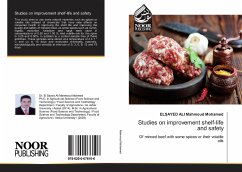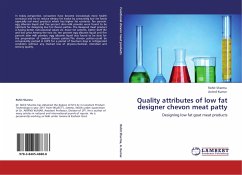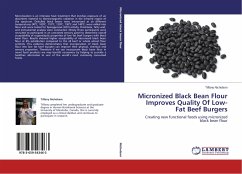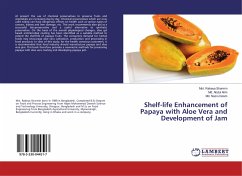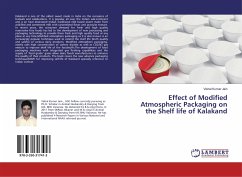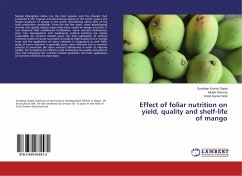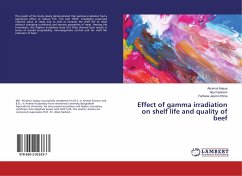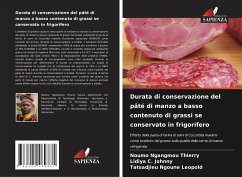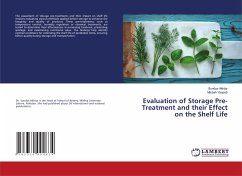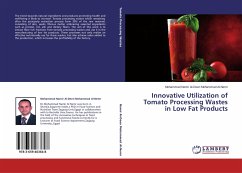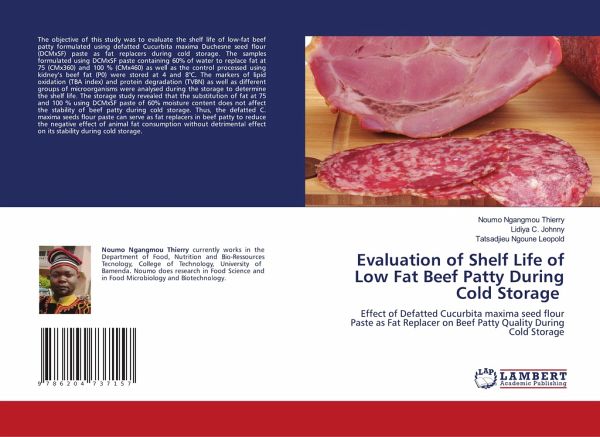
Evaluation of Shelf Life of Low Fat Beef Patty During Cold Storage
Effect of Defatted Cucurbita maxima seed flour Paste as Fat Replacer on Beef Patty Quality During Cold Storage
Versandkostenfrei!
Versandfertig in 6-10 Tagen
29,99 €
inkl. MwSt.

PAYBACK Punkte
15 °P sammeln!
The objective of this study was to evaluate the shelf life of low-fat beef patty formulated using defatted Cucurbita maxima Duchesne seed flour (DCMxSF) paste as fat replacers during cold storage. The samples formulated using DCMxSF paste containing 60% of water to replace fat at 75 (CMx360) and 100 % (CMx460) as well as the control processed using kidney's beef fat (P0) were stored at 4 and 8°C. The markers of lipid oxidation (TBA index) and protein degradation (TVBN) as well as different groups of microorganisms were analysed during the storage to determine the shelf life. The storage study...
The objective of this study was to evaluate the shelf life of low-fat beef patty formulated using defatted Cucurbita maxima Duchesne seed flour (DCMxSF) paste as fat replacers during cold storage. The samples formulated using DCMxSF paste containing 60% of water to replace fat at 75 (CMx360) and 100 % (CMx460) as well as the control processed using kidney's beef fat (P0) were stored at 4 and 8°C. The markers of lipid oxidation (TBA index) and protein degradation (TVBN) as well as different groups of microorganisms were analysed during the storage to determine the shelf life. The storage study revealed that the substitution of fat at 75 and 100 % using DCMxSF paste of 60% moisture content does not affect the stability of beef patty during cold storage. Thus, the defatted C. maxima seeds flour paste can serve as fat replacers in beef patty to reduce the negative effect of animal fat consumption without detrimental effect on its stability during cold storage.



